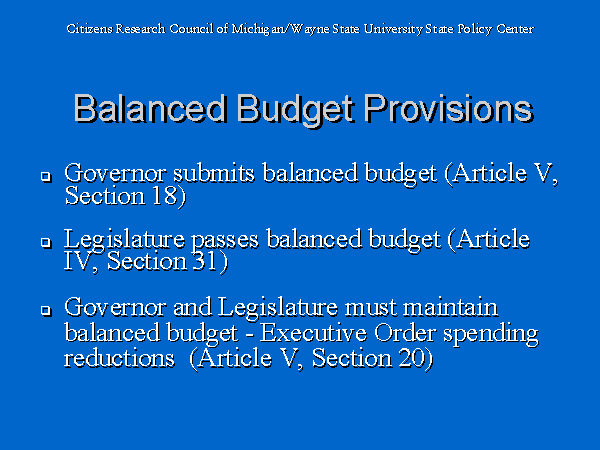
|       |
Slide 30 of 84

|       |
Slide 30 of 84
The second area within the legal constitutional framework is the balanced budget requirement. Michigan has three very strong provisions in the constitution that direct state government to enact a balanced budget and manage resources after the budget is enacted to achieve a balanced budget outcome.
The first is the Governor is expected to submit a balanced budget to the legislature for consideration. The budget the Governor submits must recommend expenditures in the aggregate that won't exceed the resources available to pay for them. The legislature is expected to ultimately pass a balanced budget. However, it is not unusual initially for the individual houses to approve expenditures that exceed the resources, as participants in the process are positioning for support for programs that they are favoring. But the final outcome must be a set of appropriations that do not exceed the resources that are available. And finally the Governor and the legislature, once the budgets are passed and signed, must maintain a balanced budget. If it becomes clear that the budget is getting out of balance, either because revenues are coming up short or because of some irresistible expenditure needs there is an executive order process available to reduce appropriations to bring the budget back into balance. Governor presents a proposed Executive Order to reduce appropriations and a majority of the members of both appropriations committees may pass the proposal, but only exactly as submitted. It is not possible to modify the proposal. If an Executive Order is not approved, the Governor typically enters into negotiations with legislative leaders and a new executive order is submitted.